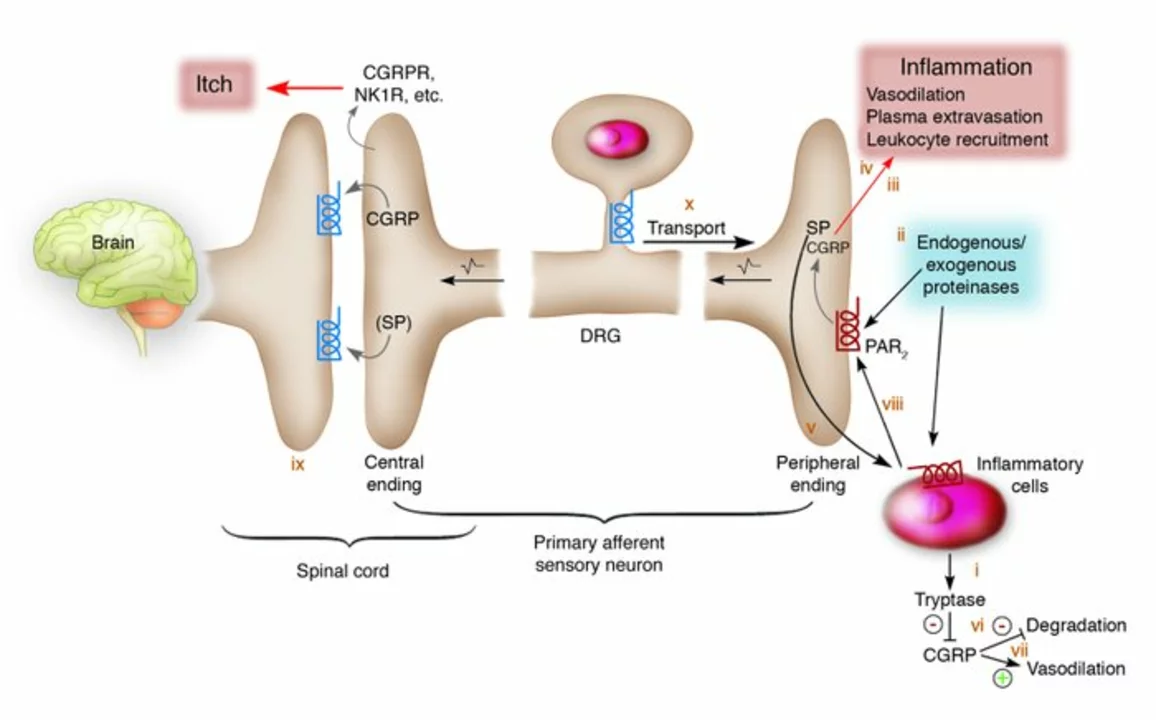Hormone Imbalance: What It Is and How to Tackle It
If your energy is all over the place, mood swings hit out of nowhere, or you’re dealing with weight changes that won’t budge, hormones might be the hidden culprit. Hormones are tiny messengers that tell different parts of your body what to do. When they get out of sync, you notice it fast – think fatigue, sleep trouble, skin flare‑ups, or a sudden dip in libido.
Most people don’t realize that everyday stress, poor sleep, and even the food you eat can push your endocrine system off balance. The good news? Small lifestyle tweaks and smart testing can often bring things back to normal without pricey prescriptions.
Common Signs That Your Hormones Are Off
Everyone’s body is different, but these red flags show up a lot:
- Unexplained weight gain or loss – especially around the belly.
- Constant fatigue even after a full night’s sleep.
- Mood swings, anxiety, or feeling down for no clear reason.
- Sleep problems: insomnia or waking up multiple times.
- Skin changes: acne, dryness, or sudden hair loss.
- Irregular periods in women or low libido in both genders.
If you spot a few of these, it’s worth checking your hormone health.
Simple Steps to Get Your Hormones Back on Track
1. Sleep like a pro: Aim for 7‑9 hours of consistent sleep. Dark rooms, cool temps, and turning off screens an hour before bed help regulate melatonin and cortisol.
2. Balance your meals: Include protein, healthy fats, and fiber at each meal. Foods rich in omega‑3s (like salmon or walnuts) support hormone production. Cut back on refined sugar – spikes can trigger insulin swings that mess with other hormones.
3. Move daily: Even a 20‑minute walk boosts endorphins and improves insulin sensitivity. Strength training is extra helpful for maintaining healthy testosterone and estrogen levels.
4. Manage stress: Deep breathing, meditation, or short breaks during work can lower cortisol. High cortisol over time suppresses thyroid hormones and sex hormones.
5. Get the right nutrients: Vitamin D, magnesium, and B‑vitamins play a big role in hormone synthesis. A simple blood test can tell you if you’re low.
6. Check your labs: A basic hormone panel (thyroid, cortisol, estrogen/testosterone, insulin) is cheap and tells you where the issue lies. Many online pharmacies offer at‑home testing kits that send results to a qualified pharmacist for review.
If symptoms persist despite these changes, it’s time to talk to a healthcare professional. They can rule out conditions like hypothyroidism, PCOS, or adrenal fatigue and recommend targeted treatment.
Bottom line: Hormone imbalance feels frustrating, but most people can improve it with everyday habits and smart testing. Start with sleep, food, and stress control – you’ll likely notice a shift in energy, mood, and overall health within weeks.
Inflammation and Hormone Imbalance: The Critical Link
In my latest blog post, I explore the critical link between inflammation and hormone imbalance. It turns out that chronic inflammation can wreak havoc on our hormone levels, leading to a wide range of health issues. By taking steps to reduce inflammation, we can help restore balance to our hormones and improve our overall well-being. Some of these steps include adopting a healthier diet, managing stress, and getting regular exercise. Make sure you don't miss this crucial information on the connection between inflammation and hormone imbalance, and what you can do to protect your health.
